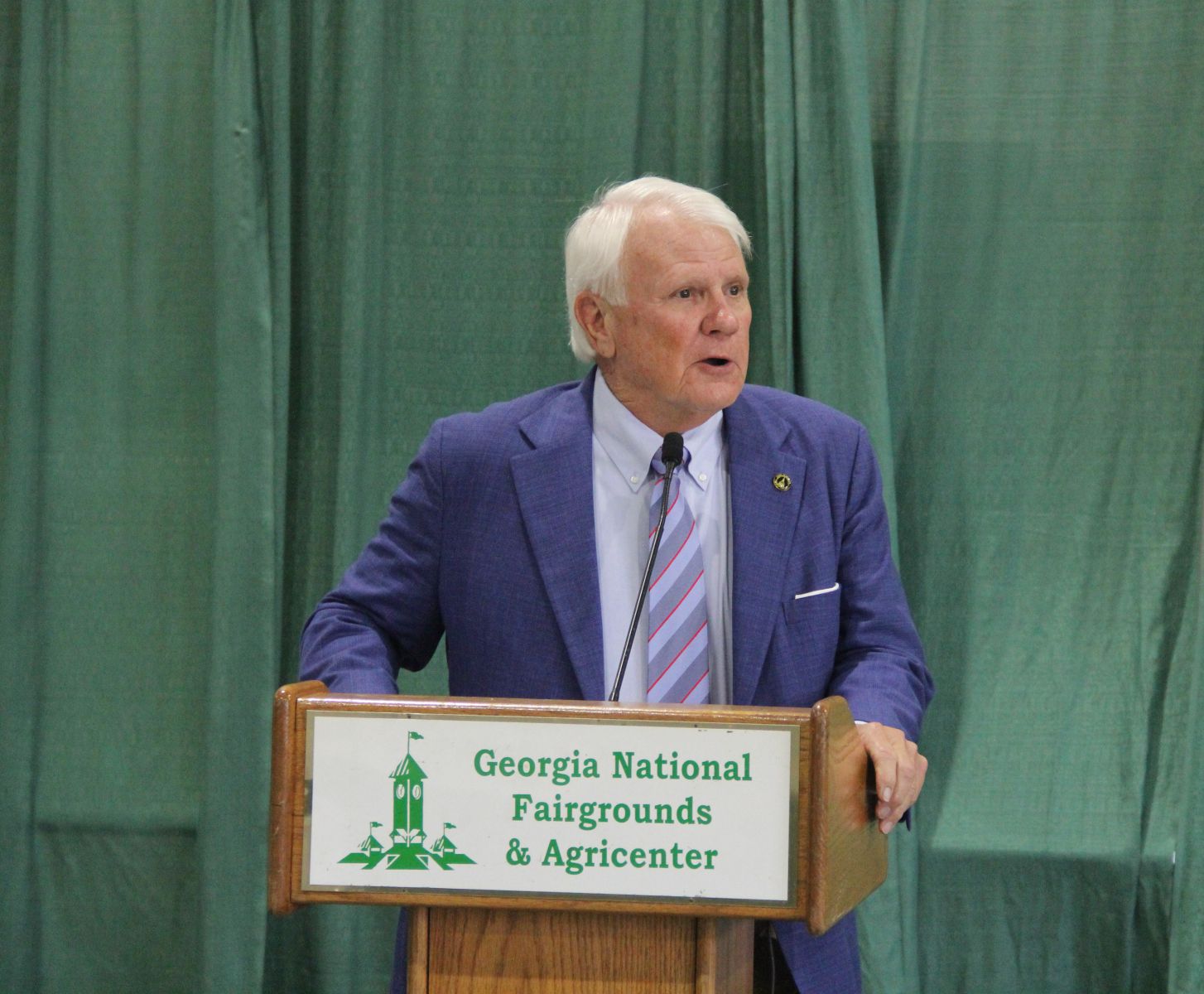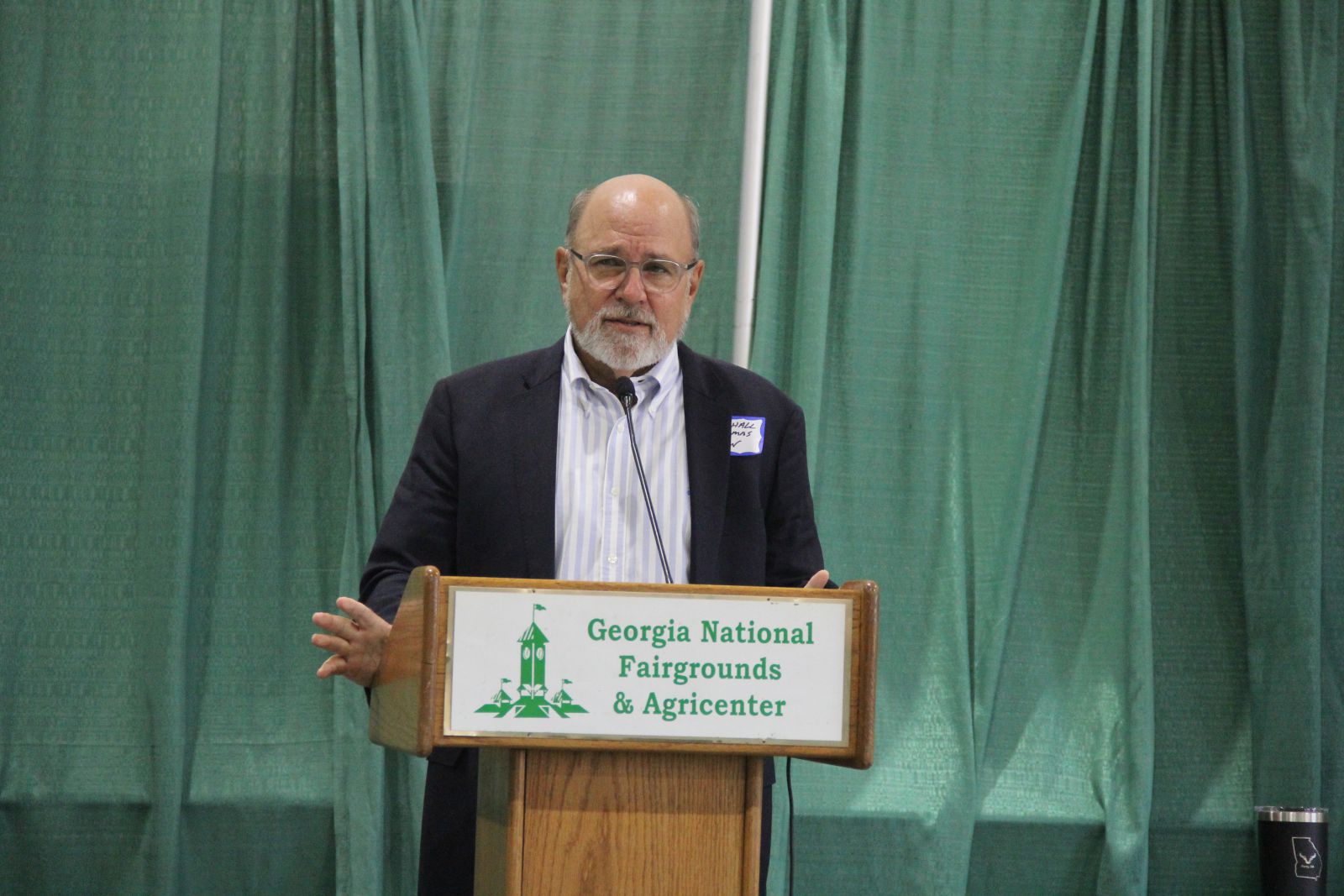Press Releases
International Paper closing plants on Georgia coast
Posted on Sep 10, 2025 at 12:21 PM
On Aug. 21, International Paper announced a series of changes that include closing its plants in Savannah and Riceboro by the end of September.
The closures, expected to be completed a year after Hurricane Helene, represent a massive blow to an area still reeling in the aftermath of the storm, which swept through the state on Sept. 27, 2024. Georgia, touted as the top timber harvest state by the Georgia Forestry Association, is estimated to have lost more than $1.28 billion worth of timber to the storm. Georgia leads the nation in forest product exports, seedling production for reforestation and acreage in private timberland. Before Hurricane Helene, Georgia had 38 million acres of timberland of which 22 million was privately owned.
The permanent closure of the Savannah containerboard mill, the Savannah packaging facility, the Riceboro containerboard mill and Riceboro Timber and Lumber will affect approximately 1,000 hourly and salaried employees at the Chatham and Liberty County plants. The company will offer severance packages, along with outplacement assistance for eligible employees.
At the same time, the company announced it would be converting a portion of its facility in Selma, Ala., to produce containerboard.
Georgia House Speaker Jon Burns, whose district 159 is just north of Chatham County, emphasized that the job losses likely will not be limited to just those at the International Paper plants.
“This unexpected announcement was highly disappointing and will undoubtedly have detrimental consequences for not only the 1,100 International Paper employees directly impacted by the closures, but also the entire economy of Southeast Georgia,” Burns said. “The Georgia Department of Labor currently estimates that three to four indirect job losses could occur for every direct job lost at the International Paper facilities. These estimates do not account for the countless farmers and timber growers throughout the region who are facing the loss of their livelihoods due to this unforeseen and devastating blow to Georgia’s timber industry.”
The company said the combined changes will result in a net reduction of its annual containerboard capacity by approximately one million tons.
Georgia Speaker of the House Rep. Jon Burns discussed the closure of two International Paper plants while speaking at the 2025 Ag Issues Summit. /Photo by Jennifer Whittaker
Georgia Pacific announced the closure of its Cedar Springs containerboard mill in Early County in May and the plant closed Aug. 1. According to Georgia Pacific, the plant employed about 535 people.
"Various factors influenced this decision, and we do not believe that the mill could continue to competitively operate. This decision had nothing to do with the quality of work of our Cedar Springs employees," Georgia-Pacific said in a released statement.
For Georgia’s timber sector to retool and survive, one part of the solution is for government to create a regulatory environment so the existing industry can thrive, F&W Forest Services President Marshall Thomas said while speaking at the Ag Issues Summit on Aug. 21, the same day news broke about the Savannah and Riceboro plant closures. Thomas said the timber industry also needs to get into producing bio energy products, such as biodiesel, to meet the growing demand for green energy.
“Last year a new bio products mill opened in Finland on a site that was previously a pulp and paper mill for 100 years,” Thomas said. “It’s fossil fuel free. It doesn’t even use electricity off the grid because it produces its own electricity. It will produce a million and a half tons of tall oil turpentine from softwood and hardwood. You can make biodiesel out of tall oil turpentine. Two and a half percent of Finland’s energy requirements will come out of this bio products mill. Instead of closing down papermills, why aren’t we doing this?”
At the 2025 Ag Issues Summit on Aug. 21, Marshall Tucker, president of F&W Forestry Services, discussed the recent paper mill closings in Georgia and what can be done to save Georgia's forestry industry. /Photo by Jennifer Whittaker
Thomas, who travels around the world visiting forests with his job, said Georgia has some of the greenest natural forests in the world with an existing industry in place with a great workforce and infrastructure of roads and loggers to get the trees to plants and the markets.
“All we have to do is shift the products that we’re making along with continue what we’re making,” Tucker said. “We’ve got everything in this state to become one of the leading providers of green products in the world. If we do that, we’re going to provide jobs, tax base and all kinds of economic opportunities to the citizens of our state.”
Thomas commended Georgia legislators and the Senate study committee that is looking into sustainable aviation fuel and other products that can be made from Georgia timber.
“We’ve also got to figure out why we’re being replaced [pulp and paper mills]. Why is the industry leaving the U.S. going to other places?” Thomas said. “It’s not just South America and China. The industry is also going to countries like Finland.”
On Sept. 10, the Georgia Forestry Commission (GFC) announced that Gov. Brian Kemp has authorized the state agency to lead a special task force to address the challenges facing the state’s forest products industry. GFC Director Johnny Sabo is working with other state agencies, academic institutions and industry partners to develop a strategic plan.
“Following Hurricane Helene’s devastating impact and recent developments in the broader industry, we know firsthand it has been a difficult year for Georgia’s timber growers,” said Kemp. “My administration and our partners, including Agriculture Commissioner Tyler Harper, stand with them. This task force is committed to working with all stakeholders in the search for possible solutions to the challenges confronting this important industry.”
The Forestry Task Force will also include the Georgia Department of Agriculture (GDA), Georgia Forestry Association, Georgia Department of Economic Development, UGA Warnell School of Forestry, Georgia Tech, the Technical College System of Georgia, and Georgia’s Rural Center (an economic development branch of the GDA). Kemp has charged the task force with seeking input and feedback directly from the forestry community – landowners, industry leaders, state and federal partners.
“We are grateful for the swift focus the governor has placed on this critical situation,” said Sabo. “Every partner at this table is uniquely qualified to assess these unprecedented challenges and offer concrete solutions for success.”
- Categories:
- Tags:

